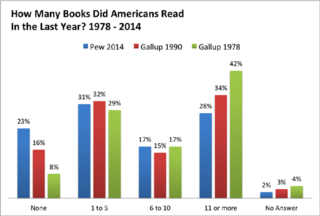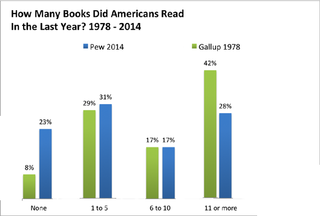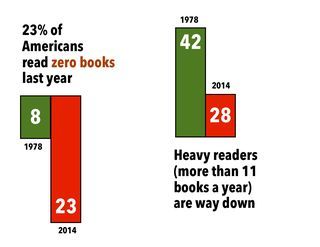Seth Godin's Blog, page 161
May 9, 2015
A hierarchy of organizational needs
Make it properly
Make it on time
Make it efficiently
Make promises
Make it matter
Make connections
Make a difference
Make a ruckus
Make change
It gets more and more compelling (and more difficult) as you move from making it properly to making change. But we need all of it.







May 8, 2015
Do you want our apathy?
Don't respond to emails.
Be defensive when I offer a suggestion when we meet.
Dumb down the products so they appeal to the lowest common denominator.
Treat me like I don't matter more than anyone else.
Put me on hold.
Don't miss me if I'm gone.
Maximize profit, not impact.
If you want me to be an apathetic bystander, it's not that difficult to accomplish.
Whatever.







May 7, 2015
Capitalism vs. lock in
Free markets encourage organizations to take leaps, to improve products, to obsess about delighting customers. One reason that this happens is that competition is always nipping at your heels... if you don't get better, your clients will find someone who does.
But once lock-in occurs, the incentives change. When the cost of switching gets high enough, the goals of the business (particularly if it is a public company) start to drift.
Google doesn't need to make search more effective. They seek to make each search more profitable instead.
Apple doesn't need to obsess about making their software more elegant. They work to make the platform more profitable now.
[For example, iMovie, which has destroyed all possible competitors because of lock-in pricing, but continues to badly disappoint most reviewers.]
Verizon doesn't need to make its broadband faster or more reliable. Just more profitable.
In many ways, it's more urgent than ever to engage in free market competitive thinking when you start a small business. But as network effects increase, we're getting worse at figuring out what to do about restoring free markets at the other end of the spectrum, at places where choices aren't as free as they used to be.
We all benefit when organizations that believe they have lock-in act like they don't.







May 6, 2015
Pretty websites
...are rarely websites that convert as well as unpretty ones.
If the goal of your site is to position you, tell a story, establish your good taste and make it clear what sort of organization you are, then pretty might be the way to go. And you can measure the effectiveness of the site by how it impresses those you seek to impress, by its long-term impact.
But it's a mistake to also expect your pretty website to generate cash, to have the maximum percentage of clicks, to have the most efficient possible funnel of attention to action.
There's always been a conflict between the long-term benefits of beauty in commerce (in architecture, in advertising, in transactions) and the short-term brutality of measurement and direct response.
It's worth noting that conflict in advance, as opposed to vainly wishing you could have both optimized. You can't. The smart marketer will measure how much direct response it's costing to be beautiful, or how much storytelling is being sacrificed to be clicked on. Not both.
[A few readers asked me to expand on this idea: It turns out that in most encounters, the worldview of people who are likely to sign up, 'like', share, click, act and generally take action instantly is not the same worldview of people that convert into long-term, loyal customers over time. Take a look at the coupons in the Sunday paper, or the direct mail pieces that show up in your mailbox, or the websites that are optimized for click/here/now.
Unattractive high-response sites aren't usually the result of a lack of taste or talent on the part of the designer, they're optimized for one worldview.
The design that you and I might see as non-beautiful is in fact a signal to one group of people just as much as it is a turn off to the other group. My argument is that you can optimize for one group or the other, but you can't likely optimize for both.]







May 5, 2015
The two books
...I get the most email about are Linchpin and The Dip. I love how persistent books can be, always teaching us something.
Linchpin was just chosen as one of four books on the recommended reading list from the Air Force's chief of staff.
I also wanted to let you know that by popular demand, you can now get copies of my newest book, Your Turn, in the UK (and Europe) faster and with cheaper shipping.
Here's the best source for US orders.
Last week I discovered something about the Your Turn orders that both delighted me and blew me away: There's an 11:1 ratio. For every order that is sold to a new customer, eleven are re-orders, sold to readers who are buying more copies to share. That's astonishing.
Thank you. You're amazing.
[PS currently reading A Beautiful Constraint. It's a worldview changer.]







Telling the truth with charts
A chart tells a story. Explain what's happening in a way that's understood, in a useful, clear presentation that's true. But too many charts fail at this simple but difficult task.
Consider this chart of the frightening decline in reading among Americans:
It's a mess. It buries the story. It's confusing.
First, there's too much data. The 1990 Gallup poll tells us nothing. Second, it goes from new data to old, even though every other table in the world gets newer as you move right. Third, it is too complete, giving us not only the useless "no answer" category but two stats in the middle that hardly changed.
We can quickly clean it up and get this:
But it still doesn't work hard enough to say what we want to say. Footnotes belong in the footnotes, along with links to the underlying data in case we want to see for ourselves. But here is the truth of this data, a story well told:







June 9, 2013
Worst one ever
Forty years ago today was my first bout of speaking in front of an audience. (And as I remember it, I approached it as a fight, not an opportunity.) I was distracted, nervous and not particularly well received.
It was an epic fail. Friends and relatives agreed that I wasn't engaged or engaging, certainly a performance not to be repeated.
I ignored the part about not repeating it, but I definitely learned some valuable lessons about confidence and engagement.
Just about anything worth doing is worth doing better, which means, of course, that (at least at first) there will be failure. That's not a problem (in the long run), it's merely a step along the way.
If you're not willing to get your 'worst one ever' out of the way, how will you possibly do better than that?



June 8, 2013
America's Favorite Mushroom
That's what it said on the side of the semi roaring down the highway.
Does America even have a favorite mushroom? As in, "no, I don't want those mushrooms on my pizza... they're not my favorite brand."
Empty slogans, carefully constructed brags, assertions that don't matter—this is not effective marketing.
 There's no question that people respond to safety and mass acceptance. The #1 seller often stays number one merely because it's already number one. But no, you don't need to add emotion when there is none, because to do so, you often have to sacrifice trust.
There's no question that people respond to safety and mass acceptance. The #1 seller often stays number one merely because it's already number one. But no, you don't need to add emotion when there is none, because to do so, you often have to sacrifice trust.



June 7, 2013
The weird tail continues
In We Are All Weird, I argued that many factors are pushing us to get ever less normal, at least when it comes to cultural choices and what we buy, what we do and who we do it with. The bell curve that for so long defined mass is melting, with the outliers gaining in number, credibility and impact.
When you give people a choice, they will take it.
One big reason: the web lets us see what the other weird folks are doing, pushing us to get weirder still.
on naming released by the Social Security Administration puts this into sharp relief. The top 1000 baby names include go-to standards like Zylin, Zymari, Zyrin, Zyrus and Zytaevius. That's not surprising, because, after all, 1,000 names is a lot of names.
What's surprising is that over the last ten years, the percentage of names that don't fall within the top 1,000 keep rising. That means that more and more people are opting out of the popular naming regime, forging their own path. It used to be weird to name your kid Elvis. Now, Zyrin isn't weird enough, because we're ever more aware of where the edges lie.
Same is true with the shows we watch, the books we read and the foods we eat.
If you're chasing the masses, you're almost certainly heading the wrong direction. The masses are ignoring you. It's the weird who are choosing to pay attention, to seek out what they care about.



June 6, 2013
Reality is not a show
The media-pundit-advertiser industrial cycle has discovered that turning life into a sporting event (with winners and losers, villians and heroes and most of all, black and white issues) is profitable.
By turning our life into a game and our issues into drama, the punditocracy and the media-industrial complex profits. And the rest of us lose.
Politics get this treatment, but so do natural disasters, poverty and even technology.
How long does it take after an event occurs before the spinning starts? And because we've seen the spinning acted out on such a large scale, we begin to do it ourselves. We create office drama that replaces the real-life nuance of difficult decisions, and we seek out wins in our personal life when life is always about compromise.
This is dehumanizing, because it turns pathos into ratings and makes just about everyone into 'the other', not someone deserving more than clicks, linkbait and trolling.
It's so easy to boil whatever happened down to a finite number of characters, to engage in online debates with people we'll never meet and to gamify just about everything.
I'm not sure there's any number of Facebook likes that can replace a hug.



Seth Godin's Blog
- Seth Godin's profile
- 6535 followers






